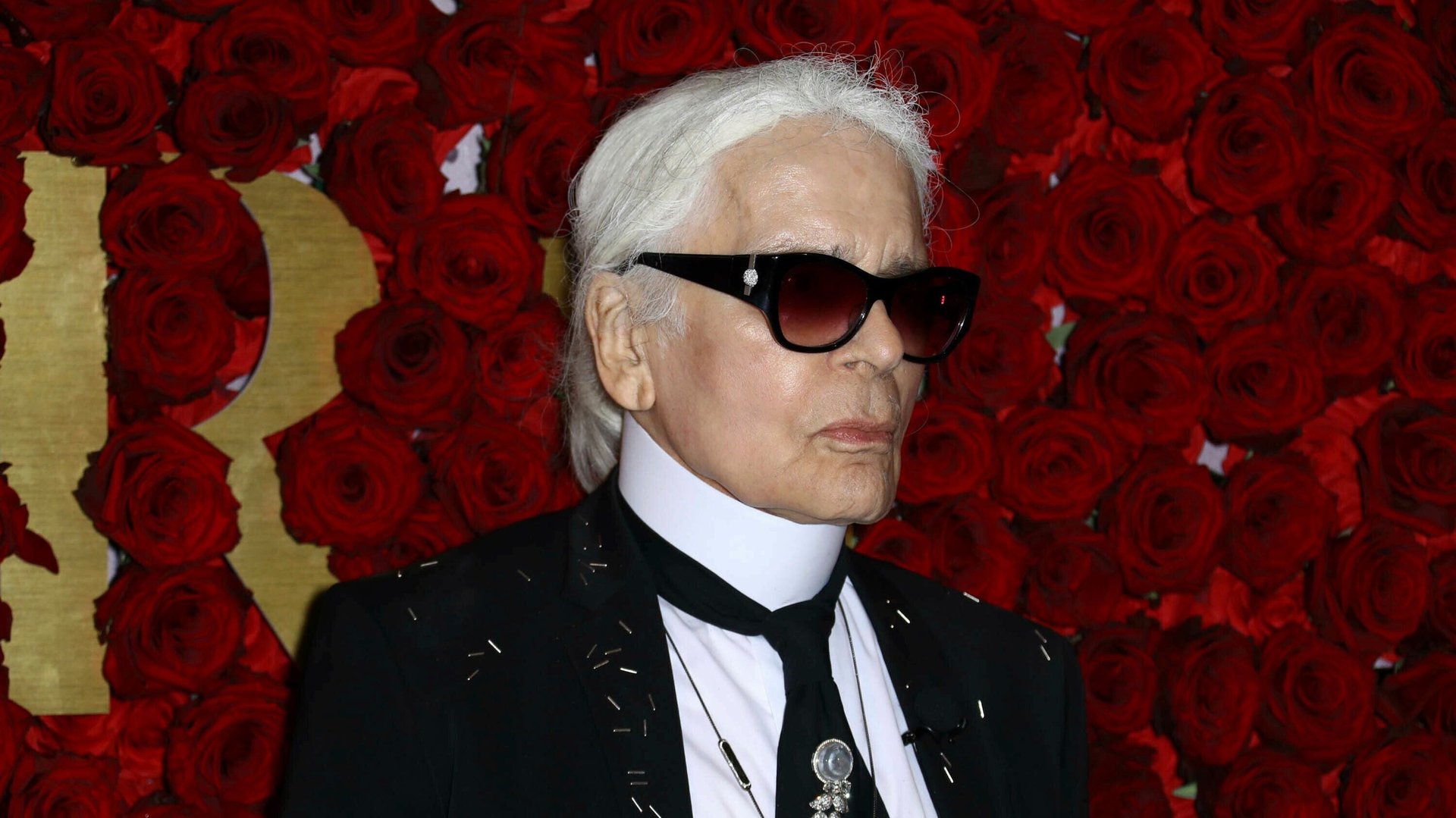Karl Lagerfeld’s death makes us ask: How should we mourn problematic people?
In the sense that he merited praise and scorn at various times, Karl Lagerfeld was what people might call problematic.


In the sense that he merited praise and scorn at various times, Karl Lagerfeld was what people might call problematic.
For more than 50 years, right up until his death yesterday (Feb. 19), he was one of fashion’s leading designers, a seemingly limitless fount of creativity, energy, and pure love of his work, not to mention a trained couturier capable of making exquisite fantasies from fabric. Beyond that, many who worked with him found him kind, caring, generous, and funny. For these qualities he has been widely memorialized by people across the industry, and many beyond.
He could also be snide, dismissive, even cruel, particularly toward women. When the magazine Brigitte announced it would start using “ordinary, realistic” women in its photoshoots, Lagerfeld said “no one wants to see round women,” and that it was “fat mummies sitting with their bags of crisps in front of the television” who objected to thin models. Once, pretending to be Coco Chanel, he said, “I was never a feminist because I was never ugly enough for that.” As models started to come forward as part of the #MeToo movement with their own allegations against powerful men in the industry, Lagerfeld sneered, “If you don’t want your pants pulled about, don’t become a model!” There are many other examples, occasionally also taking aim at male models, or immigrants seeking refuge in Germany. For that he is also being remembered right now.
The two views of the designer are currently wrestling with each other on social media. On Twitter yesterday, actress and model Cara Delevingne, who walked in several Chanel shows and knew Lagerfeld, wrote, “He is a visionary, a genius but more than that…. a dear friend. Outside of fashion, he was one of the most interesting and caring men I have ever met.”
At about the same time, actress Jameela Jamil, who has spoken out against the body-shaming women endure, tweeted, “A ruthless, fat-phobic misogynist shouldn’t be posted all over the internet as a saint gone-too-soon.” Jamil and Delevingne wound up in a civil exchange that underscored the complexity of how one should or shouldn’t mourn so-called problematic people.
There is, of course, no way to tally the net good or harm a person does on a balance sheet. (There is on The Good Place, the show Jamil stars in, but humans don’t have access to that accounting.) How we feel about a person often comes down to how they personally affected us. For Delevingne and others who personally knew Lagerfeld, that relationship was positive.
But the situation is more complicated when talking about public figures who could have an influence on people they never met. Lagerfeld’s comments contributed to an unhealthy idea of how women should look and expect to be treated. Models, possibly including some he worked with, could be harmed by those paradigms. Luxury giants LVMH and Kering deemed them harmful enough that in 2017 they joined forces in a charter that banned models under a certain size, required certificates from agencies validating that models were in good health, and stipulated that models be treated with professionalism, setting out standards for situations such as shoots involving nudity. (LVMH, it’s worth noting, is the owner of Fendi, the brand that Lagerfeld oversaw creatively for more than 50 years, meaning even he was bound by the rules of this charter.)
Lagerfeld affected different people in different ways, which is also to say that both views of him could be right. Reflecting on the dead isn’t always about looking objectively at the life of the person lost. It can be about the mourner soothing the pain they feel over the death, which makes it understandable that they would focus on the good. But it can also be about taking an honest accounting of a person’s life. In that case, it’s necessary to remember both.